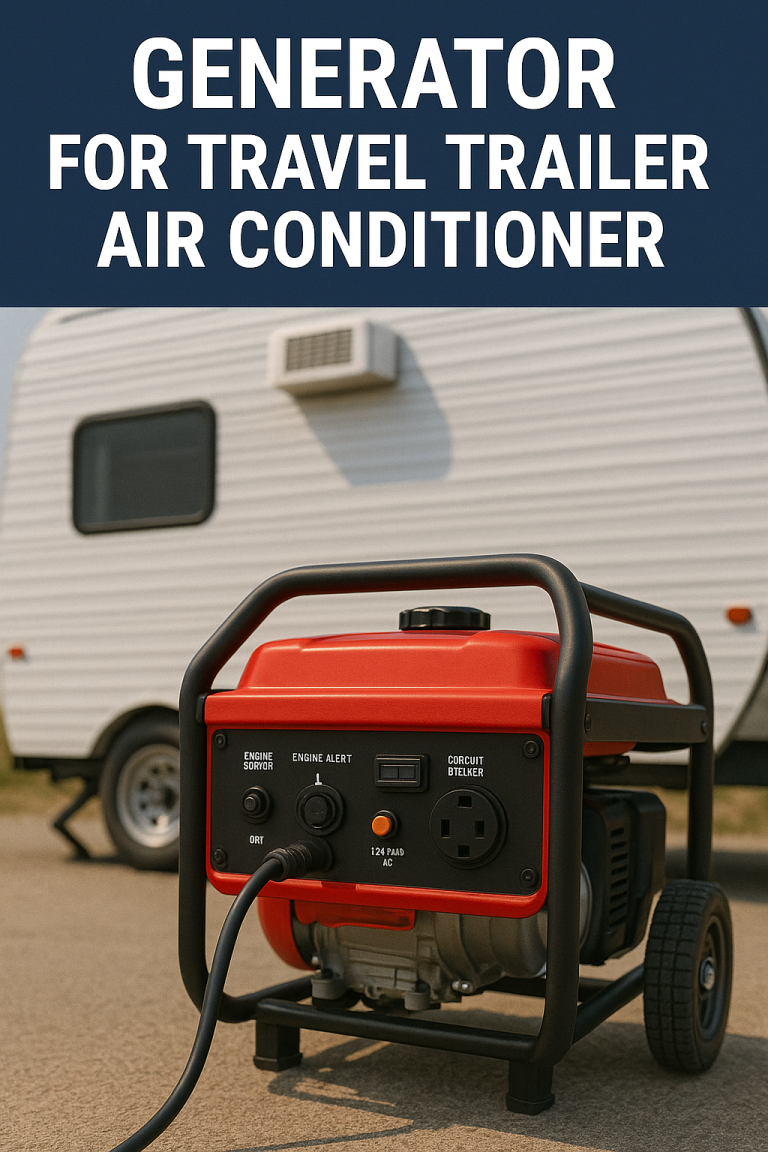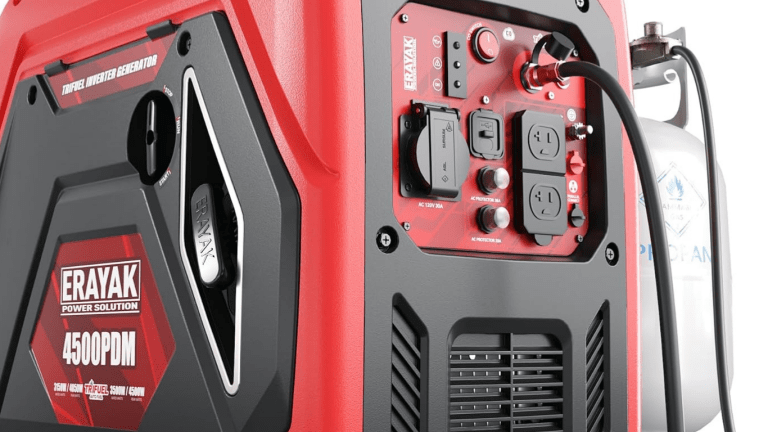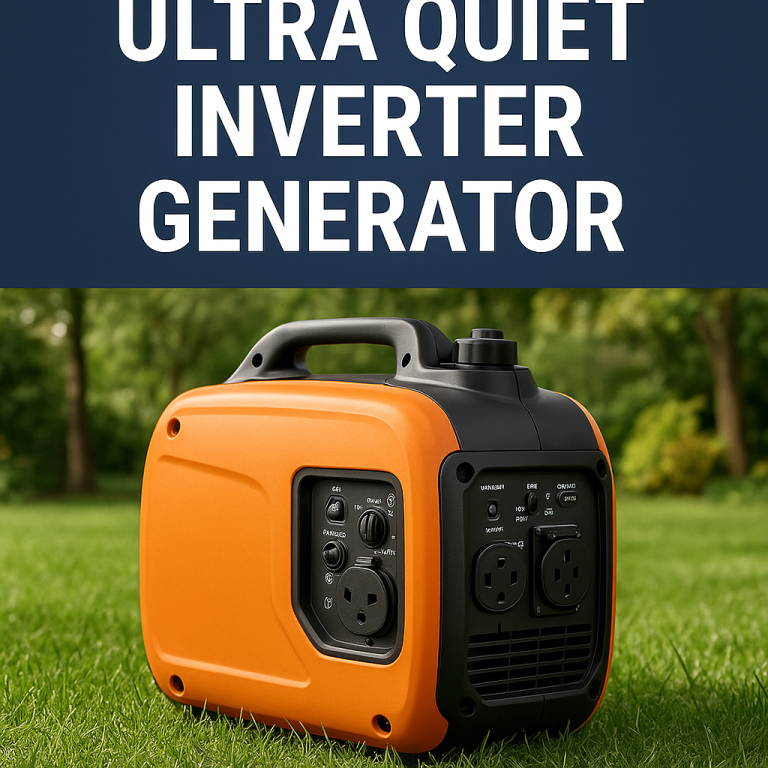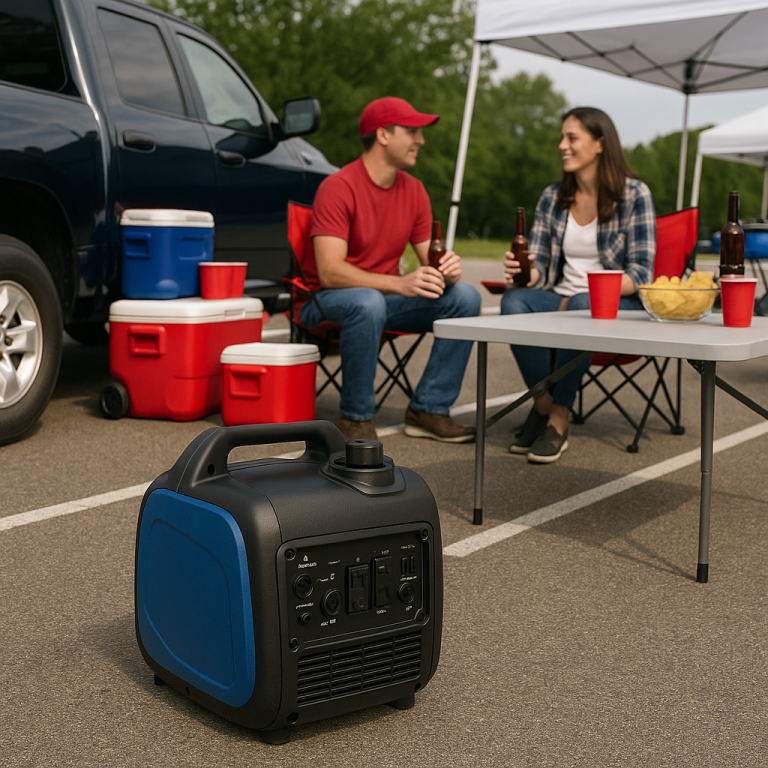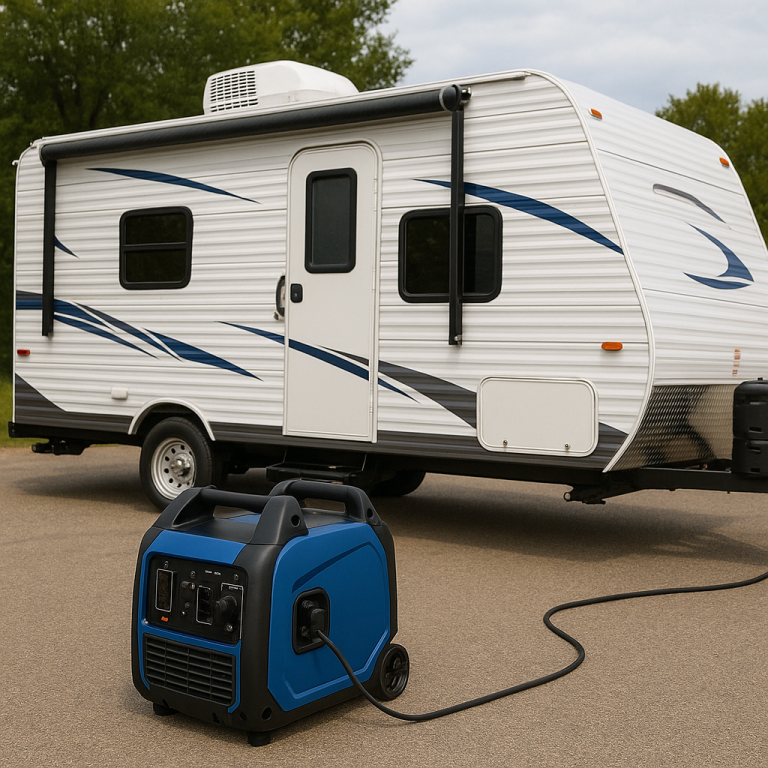Generator That Fits in RV Storage Compartment – Compact Power On the Go
If you own an RV, you already know that space is a premium. Every inch of storage matters — and when it comes to bringing a generator along for power, you can’t afford to waste space on something bulky and awkward. That’s why finding a generator that fits in your RV storage compartment is crucial for modern road warriors who want reliable power without sacrificing room for gear or essentials.
In this guide, we’ll show you what kind of generator you need to look for, what features truly matter in compact RV use, and how to choose the perfect unit to fit your rig’s available space — while still delivering enough wattage to power your lifestyle on the road.
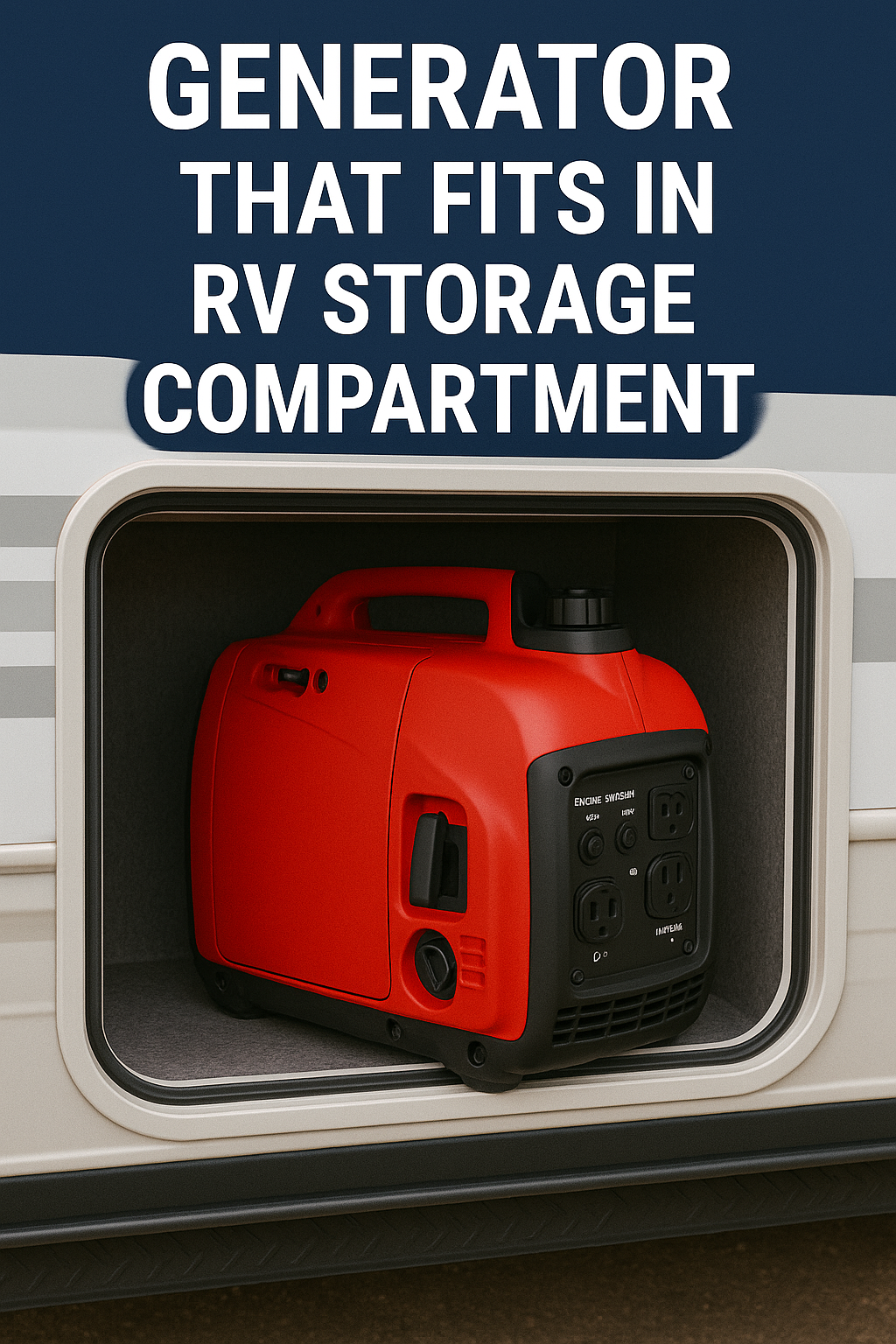
Why Generator Size Matters in an RV
Class A, B, or C — no matter your RV type, one thing holds true: storage space is limited. Many RVers keep gear, hoses, outdoor cooking supplies, or emergency kits in those precious exterior compartments. That means your generator has to fit without crowding out the essentials.
Here’s why choosing the right-sized generator matters:
- Easy storage in exterior bays or under-bed compartments
- Quick access when you need emergency or off-grid power
- Safer transportation without needing to strap down large equipment inside the RV
- Quiet, low-profile operation that doesn’t disturb your space or surroundings
Not every generator fits the bill. You need power in a small package — something compact, lightweight, and RV-friendly.
What Type of Generator Fits in RV Storage Compartments?
The best generators for RV compartments are portable inverter generators. These units are:
- Compact: Most models are smaller than a carry-on suitcase
- Lightweight: Often under 50 pounds
- Quiet: Designed for residential and RV park use
- Fuel-efficient: Run longer on smaller tanks with less noise and emissions
- Safe for electronics: Produce clean power for laptops, TVs, and chargers
You can also find dual-fuel inverter generators that run on gasoline or propane, giving you flexibility in fuel choice and extended runtime without increasing size significantly.
Dimensions to Consider Before You Buy
Before shopping, measure your storage compartment. Consider:
- Height — This is often the most limiting dimension.
- Width and depth — You need room to slide the unit in and out without scraping the walls.
- Ventilation — If you plan to store while in use (not recommended for most gas models), ventilation becomes a serious concern.
Most compact inverter generators range between 18 to 24 inches wide, 10 to 15 inches deep, and 15 to 20 inches high. As long as your compartment fits those numbers — with a little extra room for airflow and maneuvering — you have plenty of great options.
How Much Power Do You Need?
Before choosing a generator based on size, make sure it can handle your power needs. Common RV essentials include:
- Refrigerator: 600–800 watts
- Microwave: 800–1000 watts
- Lights and fans: 100–300 watts combined
- Air conditioner (13,500 BTU): 1500–2000 running watts, up to 3000 starting watts
- TV, laptop, or router: 100–300 watts total
For most RVers, a generator with 2000 to 3000 starting watts is enough to handle everyday needs, including running a small air conditioner (especially with a soft start device). If you want to power multiple appliances simultaneously, you may want to aim for a 3500 to 4500-watt model — though this may stretch the limits of your storage space.
Features to Look For in a Compact RV Generator
Choosing a generator for your RV isn’t just about size — it’s about how it works, how loud it is, and how easily it integrates with your rig.
Quiet Operation
Noise is a big deal in campgrounds and tight parking spots. Look for models that operate at under 60 decibels at 25% load. Quieter models let you run the generator without disturbing your neighbors or your own peace.
Fuel Efficiency and Runtime
Compact generators often have smaller tanks, so choose a model with eco mode or variable engine speeds. This improves fuel economy and can provide 6–10 hours of runtime on a single tank, depending on load.
Lightweight and Easy to Move
Look for a unit that weighs under 50 pounds and includes a handle or wheels for easy transport. Some models can be carried with one hand — great if you’re loading and unloading often.
RV-Ready Outlet
Generators with a 30-amp RV outlet save you the hassle of adapters. Plug in directly using your shore power cable and power up key systems like lights, fridge, and outlets all at once.
Clean, Stable Power
Always choose a generator with low total harmonic distortion (THD) — ideally under 3%. This ensures safe operation of electronics, laptops, mobile devices, and sensitive RV control systems.
Parallel Capability
Want room to grow without buying a giant unit now? Get a generator with parallel capability so you can link two identical units for double the power — and still store them side by side.
Tips for Storing and Using a Generator in Your RV
To make the most of your compact generator setup, keep these best practices in mind:
Store Safely
Always store the generator with the fuel valve off and the tank empty or stabilized if it will sit unused for more than a week. This prevents vapor buildup and protects internal components.
Use a slip mat or tray underneath to catch any leaks or residue, especially if your storage compartment is carpeted or unfinished.
Never Run the Generator Inside Storage
Portable generators — especially fuel-powered ones — should never be operated inside a compartment, even with the door open. Fumes, heat, and carbon monoxide can build up quickly. Always move the generator outdoors to a well-ventilated spot before use.
Bring the Right Accessories
To simplify use, keep a heavy-duty extension cord, a fuel can, and spare oil stored near the unit. If your RV doesn’t have a transfer switch or power inlet, you’ll use the extension cord to run appliances directly.
Test Regularly
Start and run your generator every few weeks, especially during off-season months. This keeps the fuel system clean, charges the battery (if electric start), and ensures it’s ready when you need it most.
Final Thoughts: The Perfect Generator for Compact RV Storage
Finding a generator that fits in your RV storage compartment doesn’t mean sacrificing power or performance. Today’s inverter generators are compact, quiet, and powerful enough to keep your adventures running — whether you’re boondocking in the wild or parked in a quiet campground.
To recap:
- Measure your storage space before you buy
- Aim for a compact inverter generator with at least 2000 watts
- Look for quiet operation, RV-ready outlets, and fuel efficiency
- Store it smart and always run it outside the RV
- Consider dual-fuel or parallel-capable options for future flexibility
With the right unit, you’ll enjoy quiet, reliable power — without cluttering your RV or giving up space for the gear that makes your journey fun.

